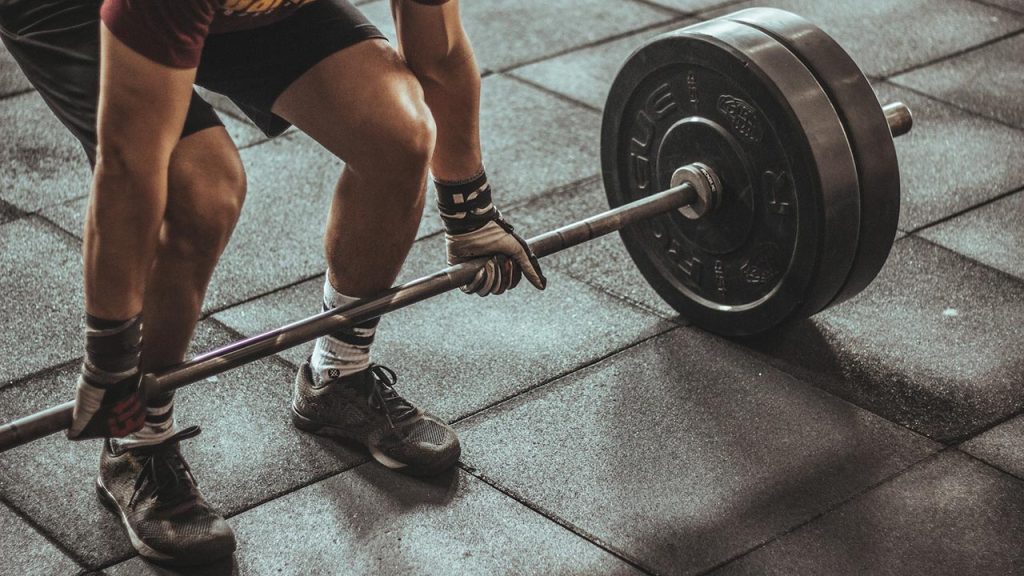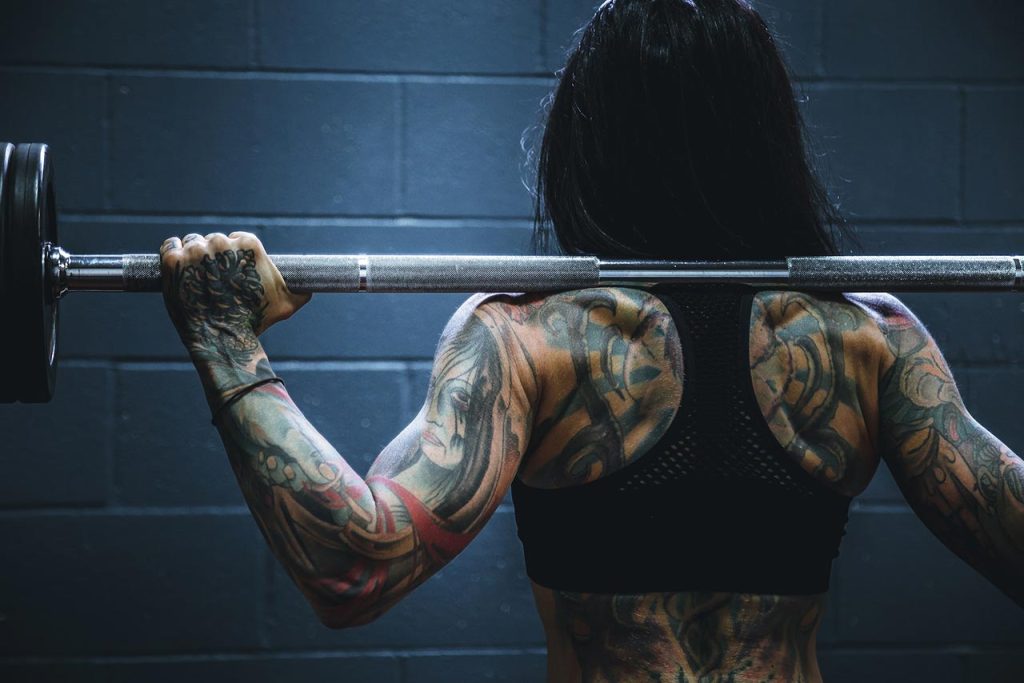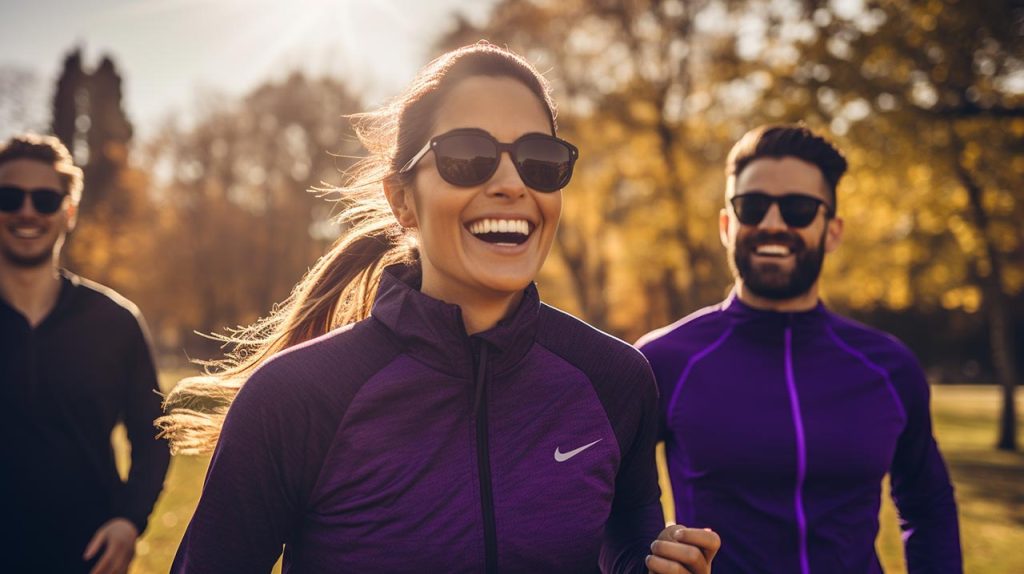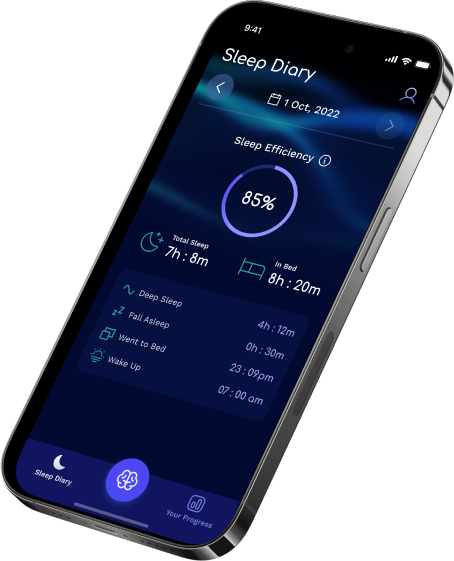
Do exercise and sleep share a connection with each other? Well, if you have properly exercised at least once in your life, you won’t need convincing they do.
I mean, how nice is it to do a proper workout, take a warm shower, have a delicious meal, and then finally lie in a comfortable bed, knowing in full confidence that you will have no trouble falling asleep once your head hits the pillow, because of how healthily exhausted you are? It sounds like a pretty good way to end the day to me.
In this article, I’ll explain why exercise and sleep are such positive tools for human health and how they mutually influence each other.
Let’s start.
🔎 Feel free to jump to your preferred section in this article:
▪ How Exercise Affects Sleep
▪ How Sleep Affects Exercise
▪ FAQ
▪ Join Our Community
1. How Exercise Affects Sleep
As I tried to illustrate in the Introduction, a proper workout session can make the sleeping process so much better and enjoyable to you.
The reasons for that will now be explained.
1.1 Improvement of Sleep Metrics
Studies have shown that exercise tends to improve these sleep metrics:
- Increase in sleep durationx;
- Increase in sleep depth;
- Reduction in the amount of time it takes to fall asleep (i.e. sleep onset);
- Increase time spent in slow-wave sleepx;
💡 If this is something you’d like to track yourself — let’s say you’d like to test what exercise modalities improve your sleep metrics the most — then feel free to try our LucidLink app.
1.2 Improvement of Stress, Anxiety and Depression
Through its hormonal and endorphinic influence, exercise can be very effective in reducing stress, depression, anxiety; and associated feelings of worry, sadness, and irritability.
Exercise can also help you build confidence and self-esteem.
All these aspects influence sleep quality, so it’s good to have a daily habit (i.e. exercise) to keep them in check.
1.3 Reduction in Sleep Apnea
Sleep apnea is a sleep disorder that affects sleep quality and is associated with various health problems.
Since exercise can reduce your body weight and visceral fat, and those factors are known causes of sleep apnea (in some, but not all cases), then the more in shape you get, the more you can reduce your sleep apneax.
If you suffer from this problem, exercise might be an option for you to consider (always talk to your doctor first to get personalized advice, obviously. Your sleep apnea may be caused by something else).
1.4 Effects Based on Exercise Timing
Exercise can affect sleep differently depending on the time of the day.
Different people have different preferences and chronotypes and will naturally adapt their exercise schedules to the hours they enjoy the most. Some people prefer exercising in the morning, and it works great for them (couldn’t be me). Me, personally, I have been working out in the evening for years, often up until 22:30, and my sleep has always been pretty good.
The most important thing is that you do exercise consistently.
1.4.1 Daytime Exercise
Exercising outdoors, exposed to natural light, helps regulate your circadian rhythm and melatonin production.
This can be a helpful tip to those individuals currently suffering from bedtime and wake-up hours that are out of sync with the natural light hours (i.e. they have what’s known as delayed circadian rhythm).
Exercising outdoors can also have other benefits, such as increasing your levels of Vitamin D, which is also known to improve sleepx
1.4.2 Nighttime Exercise
Is exercise before bed harmful? It can be, but there are some nuances.
Exercise, if it is too vigorous, and within 90 minutes before bedtime can disrupt your sleep, since it will elevate your heart rate, blood pressure, body temperature, and adrenaline levels.
But beyond that, it is a myth that late-night exercise affects sleep negatively. Evening exercise is now believed to produce the opposite effect, and instead promote better sleep quality, increasing time spent in slow-wave sleepx
1.5 Effects Based on Exercise Type
Different types of exercise can affect sleep differently. Let’s see what science says.
Both aerobic exercises (e.g., running, swimming) and anaerobic exercises (e.g., weightlifting) are known to improve your sleep in various ways, as discussed above.
However, it should be noted that a preliminary study has recently found evidence that weightlifting is the best choice in terms of improving sleep metrics, outperforming both aerobic exercise and aerobic exercise + weightliftingx
Some form of weightlifting is always good to incorporate into your habits. Not only because of the sleep benefits, but also because having muscle mass as a general rule will make your life better, and can even improve your sleep in indirect ways (e.g. it can improve muscular balance and eliminate pain associated with bad posture)
A third type of exercise focused on flexibility (e.g. yoga, pilates), can be helpful for sleep, by relaxing your mind, muscles, and joints. If you suffer from pain that keeps you awake at night, this type of exercise might help tame some of itx.
1.6 Effects Based on Exercise Intensity
As mentioned above, performing high-intensity exercise within 90 minutes of bedtime is not wise.
That does not mean you should now believe that high-intensity exercise is bad for sleep. On the contrary — if you respect that 90-minute rule, it can be extremely beneficial to sleep.
- For instance, a meta-analysis has shown that HIIT (High-Intensity Interval Training) typically significantly improves sleep quality and efficiency among other sleep metricsx.
- Another study also showed this type of exercise is better at reducing fatigue in older adults when compared to Moderate-Intensity Continuous Trainingx
👉🏻 The important thing with high-intensity exercise is not to overdo it, otherwise you will lose the benefits, and possibly even get worse sleep. The ideal range for good sleep seems to be 30-40 minutes a week. Any overtraining can cause bad sleepx so always be on the lookout for any possible signs.
📢 Enjoying this article so far? Don’t miss the next one — you can subscribe to the newsletter, follow us on your favorite social media, or even join us for a real-time chat on Discord
2. How Sleep Affects Exercise
Now for the athletes, it’s time to turn things around in this symbiotic relationship and focus on how sleep affects performance and exercise.
2.1 Overall Impact on Physical Performance
We all know that a lack of sleep can affect our body performance negatively — this is something any of us has had direct experience with, in our daily lives (e.g. a bad night of sleep can leave us exhausted the next day). Unsurprisingly, there are plenty of studies out there showing that’s true for athletes as wellxy.
But the most interesting finding in those studies was that going beyond the recommended 7-8 hours per night, actually resulted in an even better physical performance in sports:
- Basketball players will run faster, and shoot betterx.
- Swimmers will swim fasterx.
- Tennis players will serve more accuratelyx.
So, it’s a pretty straightforward formula:
- Less than the recommended hours of sleep = Bad sports performance 💀
- Recommended hours of sleep = Normal sports performance 💪🏻
- More than the recommended hours of sleep = Optimal sports performance 🏆
2.2 Overall Impact on Mental Performance
Sleep is in charge of refreshing the brain and mind during the night.
It’s only through sleep that you can be mentally sharp, focused, and ready to tackle any exercise challenge that comes your way.
In professional sports, any split-second decision can be the difference between winning or losing.
In Yoga, concentration plays an important role when doing a pose.
These examples show how important the mind is to a physical activity. If peak performance is essential to you, don’t neglect this aspect.
2.3 Muscle Building
If you are an athlete, I’m sure you are already aware of how important sleep is for muscle growth, but if that’s not the case, the following information may come as a surprise to you: actual muscle growth does not occur at the gym. It occurs during sleep.
- Weightlifting = muscle destruction
- Sleep = muscle reconstruction (bigger and stronger than before)

The reason people think otherwise is due to the effect seen at the gym known as the pump (don’t google Arnold talking about it), and it refers to how muscles become enlarged as you train them. However, this effect occurs due to inflammation, which disappears after a few hours.
The pump is not how muscles grow, that process occurs during sleep. It may feel unintuitive because it’s a process running in the background, but that’s how it works.
2.4 Impact on Endurance
Stamina and endurance take a hit when you’re sleep-deprived, even if the sleep deprivation is not that bad.
For instance, a study found that volleyball players got tired faster and couldn’t perform for as long as they could when they had sleep deprivationx.
2.5 Injury Prevention
Sleep can help in injury prevention in two different ways.
- Since sleep is a restorative process, if you don’t get enough of it, you won’t get restored. Simple logic. So, if you don’t give yourself enough time for your body to recover from the micro-damage received during exercise, and then you physically challenge it again before it’s fully prepared for it, you will be increasing the risk of injuring yourselfx with a strain, sprain or worse.
- Since sleep affects cognitive abilities, that may result in poorer decisions that result in physical harm (e.g. a gymnast mistiming a jump; a long-distance runner misjudging a type of terrain).
Injuries are no fun! Prevention should be a top priority for most athletes, as any sufficiently bad injury can be enough to either end a career; or at least it will prevent the athlete from performing at a previously attained level again. So given the potential risks, take into consideration the necessity of giving priority to your sleep.
2.6 Illness Prevention
Since sleep deprivation can result in a compromised immune system, that means sleep plays a role in preventing you from becoming sick. And when you’re sick, the most you should do is light exercise, if that much.
FAQ: Answering Some Questions
Let’s quickly answer some questions about sleep and exercise that I haven’t had the chance to mention before in this article; and maybe also revisit some information for those who skimmed over some parts.
Q: Can too much exercise cause sleep problems ❓
Definitely! While exercise is something extremely positive for human health, overtraining is terrible and comes with plenty of downsides such as:
1. Poorer sleep quality
2. Risk of injuries
3. Lack of motivation
To avoid overtraining, the sweet spot between benefits and sustainability is typically around 1 hour of exercise per day, five times a week, but you should always listen to what your body says.
Q: Should I sleep or exercise when tired ❓
If you are currently sleep-deprived, the best idea is to sleep (or settle for a light and short exercise session).
If you have slept 7-8 hours and are simply tired due to a long day of work, or feeling too lazy to get up from bed in the morning, then you know what you need to do 💪🏻
Q: Is exercise one of the ways to cure insomnia ❓
I don’t want to give an absolute answer to this question, but based on the information I’ve presented in this article, I’d say it’s worth a try — the odds are good.
I will also say that a correlation between physical activity and insomnia is well established. Typically, individuals suffering from insomnia also have lower levels of physical activityx. It’s true that correlation does not equal causation, but make of that fact what you will.
For best results, you should also try to improve your sleep hygiene alongside exercise.
Conclusion
Since the relationship between sleep and exercise is so evident, it seems obvious to start taking both seriously.
If you are a professional or semi-professional athlete, I’m sure you won’t need lots of convincing. You are already a pretty self-motivated individual who maybe just needed some extra education on the topic to keep improving.
Pro-tip: What is your next step as an athlete? Use our LucidLink app to track your sleep, mood, and habits, and find correlations between them.
For those who are not athletes and need to get started, exercise comes in many forms, so you have lots of options to choose from.
Don’t particularly enjoy the gym? No problem! You can opt for Yoga, Pilates, Zumba, Walking, Hiking, Cycling, Swimming, Martial Arts, Rock Climbing. The important thing is that you start moving more; so that you can start sleeping more!
The fun part about exercising is finding something that truly resonates with you and sticking with it until it becomes part of who you are, and you can’t imagine living without it.
Until next time,
MN

🌙 If you enjoy sleep-related content, join our community! Subscribe to our newsletter, follow us on your favorite social media, and join us for a real-time chat on Discord ☀

